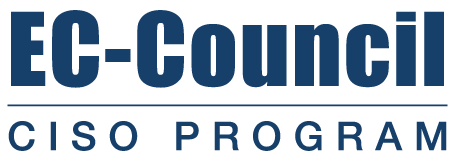Kuala Lumpur

Training:
- November 17th-20th (Kuala Lumpur)
EC-Council, the leading Information Security organization worldwide, aspires for the 1st time in South East Asia to:
- Create InfoSec leaders in ASEAN region
- Penetrate the inner sanctum of global InfoSec realm
- Supply participants with the latest key InfoSec strategies
- Drive positive change in the InfoSec industry of ASEAN region
The C|CISO program at our ASEAN CISO Workshop in Malaysia aims to break the barriers of conventional training and encourage the most influential state policy makers of the region to not only hone their InfoSec management skills, but also develop innovative leadership qualities.
Participants will learn from top US CISO who instructs the C|CISO class
Course Outline
Duration: 4DAYS
Trainer: Keyaan Williams
Certification: C|CISO Certified Chief Information Security Officer
On-site exam proctoring
(1 year exam voucher-redeem option)
The Certified CISO (C|CISO) course has certified leading information security professionals around the world and is the first of its kind training and certification program aimed at producing top-level Information Security Leaders. The CCISO does not focus solely on technical knowledge but on the application of information security management principles from an executive management point of view. The program was developed by seasoned CISOs for current and aspiring CISOs.
C|CISO Material assumes a high-level understanding of technical topics and doesn’t spend much time on strictly technical information, but rather on the application of technical knowledge to an information security executive’s day-to-day work. The C|CISO aims to bridge the gap between the executive management knowledge that CISOs need and the technical knowledge that many aspiring CISOs have. This can be a crucial gap as a practitioner endeavors to move from mid-management to upper, executive management roles. Much of this is traditionally learned as on the job training, but the C|CISO Training Program can be the key to a successful transition to the highest ranks of information security management.
About the Instructor

Keyaan Williams, Senior Executive Instructor, CCISO, is both a seasoned information security executive as well as an experienced educator. He is currently serving as Director of the International Board of Directors of ISSA. His previous positions include serving as a Faculty Member at the University of Business and Management for the University of Phoenix and the Global Director of Information Security for the CDC in Atlanta. Keyaan brings a passion for information security as well as education to his role as Senior Executive Instructor for the CCISO Program. His areas of speciality include vendor and third party risk management, organizational culture and its influence on the perceived value of security, information security policy and strategy, risk management, regulatory compliance, project management, disaster recovery and business continuity planning, cloud security, security awareness, and especially, mentoring and developing security professionals.
The 5 Domains

Domain 1 covers the importance of Governance, including solid policy writing, aligning the security program to industry-recognized frameworks, and adhering to sometimes contradicting law and regulations.
Domain 2 focuses on Management Controls, Audit Management, and Risk Management, leading students through detailed examples of how to run an audit as well as implement audit findings, choosing the correct management controls for each situation, and the importance of understanding asset value, risk tolerance, and risk treatment plans.
Domain 3 focuses on what makes up the bulk of a CISO’s day – Project Management and the importance of ensuring information security is part of projects from their inception. Domain 4 is the only CCISO Domain that focuses on technical topics as a high level of technical proficiency is assumed of all CCISO students.
Domain 4 stresses the importance of understanding technology and information security core concepts in order to lead teams of technicians and analysts and make decisions around technology issues.
Technical issues are addressed from an executive point of view. Domain 5 consists of content regarding leadership, aligning security programs to the overall goals of the business, strategic management, executive buy-in, financial management and much more. Domain 5’s content sets the CCISO program apart from all other infosec management certifications on the market by teaching the content that technical CISOs are usually lacking.
The Exam
The C|CISO Exam was developed by practicing CISOs and based on the real-world scenarios professionals from across industries have faced while securing some of the most prestigious organizations in the world. The C|CISO Exam is available at Pearson VUE testing centers around the world. Applicant’s knowledge in all five of the C|CISO Domains will be tested on the exam that focuses on scenario-based questions and requires applicants to apply their real-world experience in order to answer successfully. To that end, in order to qualify to sit for the C|CISO Exam after taking the CCISO class, applicants have at least 5 years of information security experience in 3 or more of the CCISO Domains. Any student lacking this experience may take the EC-Council Information Security Management (EISMhttps://ciso.eccouncil.orgcciso-certification/eism-program/) exam and earn the EISM certification. In order to sit for the C|CISO exam and earn the certification, candidates must meet the basic C|CISO requirements. Candidates who do not yet meet the C|CISO requirements but are interested in information security management can pursue the EC-Council Information Security Management (EISM) certification.




